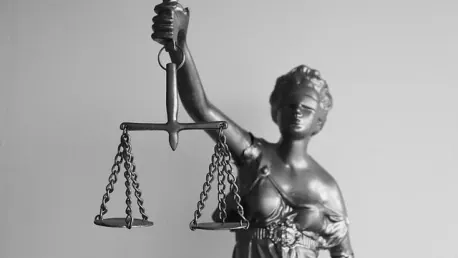The off-screen drama on the set of “It Ends With Us,” a romantic drama based on Colleen Hoover’s novel, has caught public attention, shifting the spotlight from the cinematic story to real-life controversies. Actress Blake Lively, one of the film’s star performers, is at the center of a legal storm, filing a lawsuit against her co-star and director, Justin Baldoni, and his production company, Wayfarer Studios. The lawsuit highlights significant concerns, including allegations of sexual harassment, retaliation, and defamation, shaking up the entertainment industry and its regulations on workplace behavior.
Blake Lively’s Allegations and Legal Battle
Claims of Unsolicited Contact and Improvised Scenes
Blake Lively’s lawsuit against Justin Baldoni and his associates depicts a troubling work environment marked by unsolicited physical contact and improvised intimate scenes without prior approval. Lively claims that Baldoni’s advances and behavior created an uncomfortable and hostile atmosphere on set. One of the primary accusations involves Baldoni entering Lively’s makeup trailer without permission, where he is alleged to have made inappropriate comments and attempts at physical contact. These allegations suggest a breach of professional boundaries that sparked the legal confrontation.
Beyond personal interactions, Lively also highlighted instances of improvised intimate scenes that were neither scripted nor agreed upon beforehand. This raised significant concerns about consent and the extent to which actors can be expected to participate in unscheduled intimate camera moments. Her decision to take legal action underscores the importance of clear, professional communication and respect for boundaries in the workplace, especially in industries where physical performance is a regular part of the job.
Smear Campaign Allegations and Industry Impacts
In addition to detailing incidents of harassment, Blake Lively’s lawsuit suggests that following her complaints, Justin Baldoni and his production team orchestrated a smear campaign against her. Lively alleges that crisis management experts were engaged to disseminate negative information through various social media platforms and press outlets in a bid to discredit her. This aggressive public relations tactic not only added to her distress but also highlighted the destructive potential of social media in settling personal and professional disputes.
These serious allegations raised by Lively underscore a broader issue within the entertainment industry and beyond – how online behaviors and reputations can be manipulated to harm individuals professionally and personally. The lawsuit’s narrative brings to light the critical need for ethical standards in crisis management and the responsible handling of public information. This case inevitably raises questions about accountability and the potential reform measures needed to prevent similar instances from occurring in the future.
Social Media Policies in the Workplace
Importance of Clear Social Media Guidelines
In light of these events, the article stresses the imperative need for clear and thoughtful social media policies within the workplace. Employers must ensure that the guidelines provided are comprehensive and address improper online behaviors without infringing on individual freedoms. A well-structured social media policy helps protect the company’s reputation while outlining acceptable conduct for employees. By navigating the intricacies of legality and employee rights, such policies aim to maintain a professional and respectful online presence that reflects the company’s values.
Key elements suggested for inclusion in social media policies involve managing inappropriate yet not illegal content, maintaining compliance with laws protecting off-duty conduct, and preventing the sharing of harmful or defaming posts. Additionally, fostering healthy business relationships and promoting a positive corporate image are integral components of drafting an effective social media plan. By proactively planning, businesses can mitigate risks associated with social media misuse and protect both their reputation and employees’ welfare.
Legal Perspectives and Policy Enforcement
The off-screen drama on the set of “It Ends With Us,” a romantic drama adapted from Colleen Hoover’s popular novel, has captivated public attention, shifting focus from the cinematic storyline to real-life controversies. Blake Lively, one of the film’s lead actresses, is entangled in a legal battle, having filed a lawsuit against her co-star and the film’s director, Justin Baldoni, as well as his production company, Wayfarer Studios. The lawsuit brings to light several serious issues, including allegations of sexual harassment, retaliation, and defamation. This turmoil has sent shockwaves through the entertainment industry and sparked debates about workplace behavior and regulation in Hollywood. The drama behind the scenes is now nearly as riveting as the plot itself, leading to increased scrutiny of industry standards and practices. Fans and critics alike are eagerly following this unfolding situation, making it clear that the impact of this controversy extends far beyond the film set.









